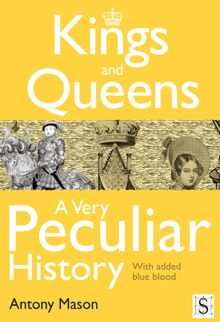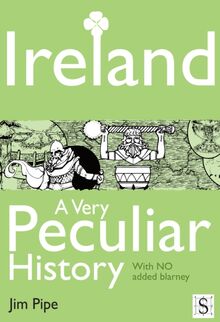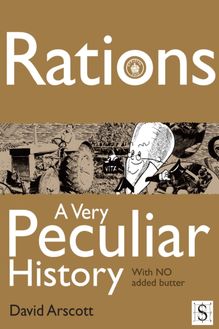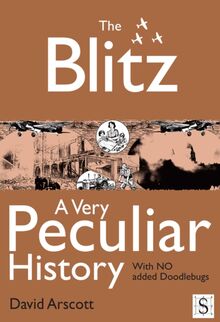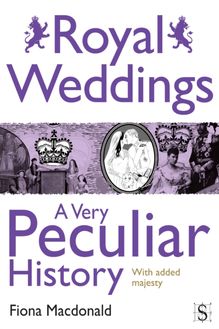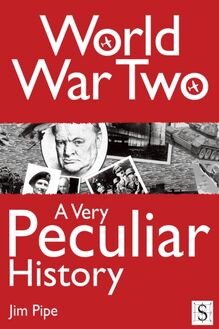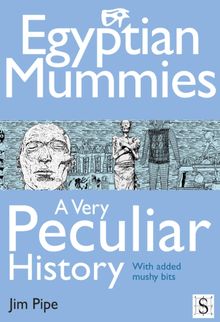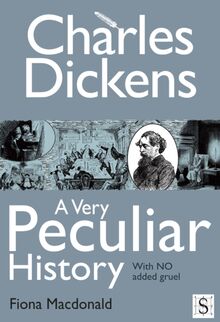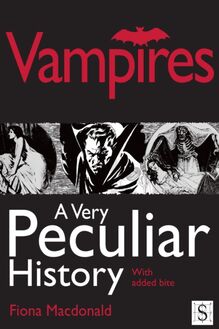-
 Univers
Univers
-
 Ebooks
Ebooks
-
 Livres audio
Livres audio
-
 Presse
Presse
-
 Podcasts
Podcasts
-
 BD
BD
-
 Documents
Documents
-
- Cours
- Révisions
- Ressources pédagogiques
- Sciences de l’éducation
- Manuels scolaires
- Langues
- Travaux de classe
- Annales de BEP
- Etudes supérieures
- Maternelle et primaire
- Fiches de lecture
- Orientation scolaire
- Méthodologie
- Corrigés de devoir
- Annales d’examens et concours
- Annales du bac
- Annales du brevet
- Rapports de stage
La lecture à portée de main
Vous pourrez modifier la taille du texte de cet ouvrage
Découvre YouScribe en t'inscrivant gratuitement
Je m'inscrisDécouvre YouScribe en t'inscrivant gratuitement
Je m'inscrisEn savoir plus
Vous pourrez modifier la taille du texte de cet ouvrage
En savoir plus

Description
Informations
| Publié par | Andrews UK |
| Date de parution | 23 février 2012 |
| Nombre de lectures | 1 |
| EAN13 | 9781908759870 |
| Langue | English |
Informations légales : prix de location à la page 0,0300€. Cette information est donnée uniquement à titre indicatif conformément à la législation en vigueur.
Extrait
Title Page
THE 60S, A VERY PECULIAR HISTORY
With added flower power
Written by
David Arscott
Created and designed by David Salariya
Publisher Information
First published in Great Britain in MMXII by Book House, an imprint of
The Salariya Book Company Ltd
25 Marlborough Place, Brighton BN1 1UB
www.salariya.com
www.book-house.co.uk
Digital edition converted and distributed in 2012 by
Andrews UK Limited
www.andrewsuk.com
Editor: Jamie Pitman
Assistant editor: Jodie Leyman
© The Salariya Book Company Ltd MMXII
All rights reserved. No part of this publication may be reproduced, stored in or introduced into a retrieval system or transmitted in any form, or by any means (electronic, mechanical, photocopying, recording or otherwise) without the written permission of the publisher. Any person who does any unauthorised act in relation to this publication may be liable to criminal prosecution and civil claims for damages.
Every effort has been made to trace copyright holders. The Salariya Book Company apologises for any omissions and would be pleased, in such cases, to add an acknowledgement in future editions.
Visit our website at
www.book-house.co.uk
or go to
www.salariya.com
for free electronic versions of:
You Wouldn’t Want to be an Egyptian Mummy!
You Wouldn’t Want to be a Roman Gladiator!
You Wouldnt Want to Join Shackleton’s Polar Expedition!
You Wouldn’t Want to Sail on a 19th-Century Whaling Ship!
Dedication
For Dave Marl, Sixties survivor and kindred spirit
DA
Quotes
‘To the detriment of almost every other group in society, the young and the beautiful picked up the 1960s and took the decade home as a toy.’
Roger Hutchinson, High Sixties , 1992
‘Like the Arthurian years at Camelot, the Sixties constituted a breakthrough, a fleeting moment of glory, a time when a significant little chunk of humanity briefly realised its moral potential and flirted with its neurological destiny, a collective spiritual awakening that flared brilliantly until the barbaric and mediocre impulses of the species drew tight once more the curtains of darkness.’
Tom Robbins, Jitterbug Perfume , 1984
‘The word “conservative” is used by the BBC as a portmanteau word of abuse for anyone whose views differ from the insufferable, smug, sanctimonious, naïve, guilt-ridden, wet, pink orthodoxy of that sunset home of the third-rate minds of that third-rate decade, the 1960s.’
Norman Tebbit, MP, 1990
‘It was a wonderful time to be young . . . We all believed in Make Love, Not War. We were idealistic innocents, despite the drugs and sex.’
Actress Margot Kidder
INTRODUCTION: Out of the darkness
It seems impossible to be neutral about the Sixties. The quotations above draw the battle lines: either it was a time of fruitful liberation, promising a flowering of love, equality, creativity and untrammelled self-expression, or it was a wretchedly irresponsible period, its legacy a breakdown of respect and decency, its damaging moral and social consequences still in evidence half a century later.
Although we’ll surely agree that both positions are extreme, it’s only fair to the reader to come clean at the outset: this book is largely a celebration of those gloriously giddy years. The excuse, should one be needed, is my age. I was born in late 1942, and so had just turned 17 when the Sixties arrived. How could a teenager emerging from postwar British drabness fail to be stimulated by the heady promise – political, cultural, economic – of what was clearly a radiant new dawn?
The weary Fifties
The story has to begin in the Fifties, both in order to make sense of the sheer exuberance of what was to follow and to acknowledge that the seeds of the coming revolution had already begun to sprout.
Our parents’ generation (pathetically conformist, as we thought) had been battered first by the Depression and then by the Second World War. Ordinary people who had survived that conflict, whether fighting abroad or coping with enemy bombardment at home, had shown the spirit to choose a postwar government dedicated to a more egalitarian way of life – the National Health Service and all that. But those early fires had already dimmed by the beginning of the following decade when the old war leader Winston Churchill was voted back into 10 Downing Street.
Most families had little spare cash, meat rationing wasn’t lifted in the UK until 1954, and those who had a decent job saw no reason to rock the boat by agitating for more pay. Enough was enough.
Many things were in short supply during the early 1950s:
•Fridges: Only about 15 per cent of homes had one.
•Telephones: Even fewer – and many shared a line with a neighbour.
•Washing machines: Most women (that’s the way it was!) had to do it by hand.
•Televisions: Ownership was growing, but there was only one channel.
•Central heating: Not since the Romans left.
As for the physical landscape, that matched the general mood. In London and other cities hammered by the Luftwaffe there were large, undeveloped bombsites sprouting weeds.
After all, the country was still paying off its war debt to the Americans (and would continue to do so until as late as 2006).
More than a million unimaginatively designed council houses were thrown up to combat postwar homelessness, many of them in a rash of ‘new towns’ throughout the country. There were also some 150,000 ‘prefabs’ – I was brought up in one myself – designed to last for ten years, but often surviving for much longer.
You never had it so good!
By the mid-1950s an economic recovery was on the way, and Prime Minister Harold Macmillan famously told a gathering of his Conservative supporters in July 1957 that ‘Most of our people have never had it so good.’
He told his audience: ‘Go around the country, go to the industrial towns, go to the farms and you will see a state of prosperity such as we have never had in my lifetime – nor indeed in the history of this country.’
He was right, but Britain wasn’t yet a consumer society, and many felt that his boast was in pretty poor taste.
The American dream
This general dreariness was to give way, as the decade lengthened, to an economic boom – and anyone anxious to predict what this would mean for British society in the years ahead only had to look across the Atlantic to the already prosperous USA.
During the war gum-chewing GIs had been described as ‘overpaid, oversexed and over here’. The Americans were back home now, but the exportable elements of their brash and confident culture cast a spell on many an aspirational inhabitant of this monochrome, tired little island, and especially on the young.
American films were much more lavish than anything made in the UK, and stars such as Marlon Brando and James Dean made the rebellious misfit an attractive role model in a society deadened by Cold War conformity.
Fings weren’t wot they used t’be!
At the very end of the 1950s Lionel Bart wrote the music and Cockney lyrics for Frank Norman’s West End success Fings Ain’t Wot They Used t’Be , directed by Joan Littlewood. The words of the title number list several contemporary social changes – and point the way forward to the Sixties…
They changed our local Palais
Into a bowling alley.
The British had always had their skittles, but the bowling alley was a craze straight from America.
There used to be trams,
Not very quick,
Gotcha from place to place,
But now there’s just jams
’Alf a mile fick.
Car ownership had begun to spread, using roads ill prepared for the volume of traffic. The new towns had been designed with narrow streets, allowing just enough room for two cars to pass, since nobody had envisaged working-class families ever being able to afford their own transport.
They stuck parking meters
Outside our door to greet us.
Bart was up to the minute, because the very first of them had been installed (in Mayfair, London) on 10 July 1958.
Once our beer was frothy,
But now it’s frothy coffee.
Tea had always been the national drink, but coffee bars were springing up the length and breadth of the land.
It used to be fun,
Dad an’ old Mum
Paddling down Southend.
The English seaside holiday wasn’t yet a last resort, but money in the pocket now allowed travel to hitherto unknown parts, and ‘Paris is where we spend our outin’s.’
Grandma tries to shock us all,
Doing knees-up rock and roll.
The ‘big bands’ were still in business, playing for a clientèle which enjoyed dancing the waltz and quickstep, but the raucous new music had already thoroughly seduced the young.
They’re buying guitars, plinketty plonk,
Backing theirselves wiv free [3] chords only.
A skiffle group had a washboard and a tea-chest bass and a rock group had its drums, but the guitar was the ubiquitous instrument of the new music, however badly played.
Rock and roll
Where on earth, our parents asked, was the melody in the music we tuned in to on Radio Luxembourg every evening? There were melodies, of course, but what older folk recoiled from was its combination of aggressive rhythms and sexual explicitness.
Although there was still a place for crooners such as Frank Sinatra, Andy Williams and Perry Como, for the likes of Gracie Fields and the Beverley Sisters, and even for comedy numbers such as ‘Seven Little Girls Sitting in the Back Seat, Kissing and a-Hugging with Fred’
-
 Univers
Univers
-
 Ebooks
Ebooks
-
 Livres audio
Livres audio
-
 Presse
Presse
-
 Podcasts
Podcasts
-
 BD
BD
-
 Documents
Documents
-
Jeunesse
-
Littérature
-
Ressources professionnelles
-
Santé et bien-être
-
Savoirs
-
Education
-
Loisirs et hobbies
-
Art, musique et cinéma
-
Actualité et débat de société
-
Jeunesse
-
Littérature
-
Ressources professionnelles
-
Santé et bien-être
-
Savoirs
-
Education
-
Loisirs et hobbies
-
Art, musique et cinéma
-
Actualité et débat de société
-
Actualités
-
Lifestyle
-
Presse jeunesse
-
Presse professionnelle
-
Pratique
-
Presse sportive
-
Presse internationale
-
Culture & Médias
-
Action et Aventures
-
Science-fiction et Fantasy
-
Société
-
Jeunesse
-
Littérature
-
Ressources professionnelles
-
Santé et bien-être
-
Savoirs
-
Education
-
Loisirs et hobbies
-
Art, musique et cinéma
-
Actualité et débat de société
- Cours
- Révisions
- Ressources pédagogiques
- Sciences de l’éducation
- Manuels scolaires
- Langues
- Travaux de classe
- Annales de BEP
- Etudes supérieures
- Maternelle et primaire
- Fiches de lecture
- Orientation scolaire
- Méthodologie
- Corrigés de devoir
- Annales d’examens et concours
- Annales du bac
- Annales du brevet
- Rapports de stage
